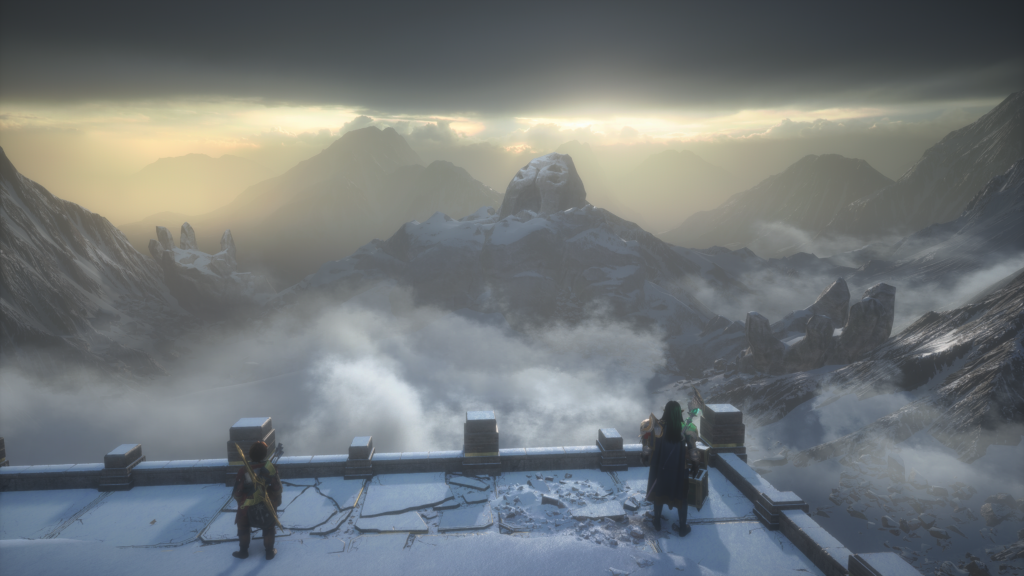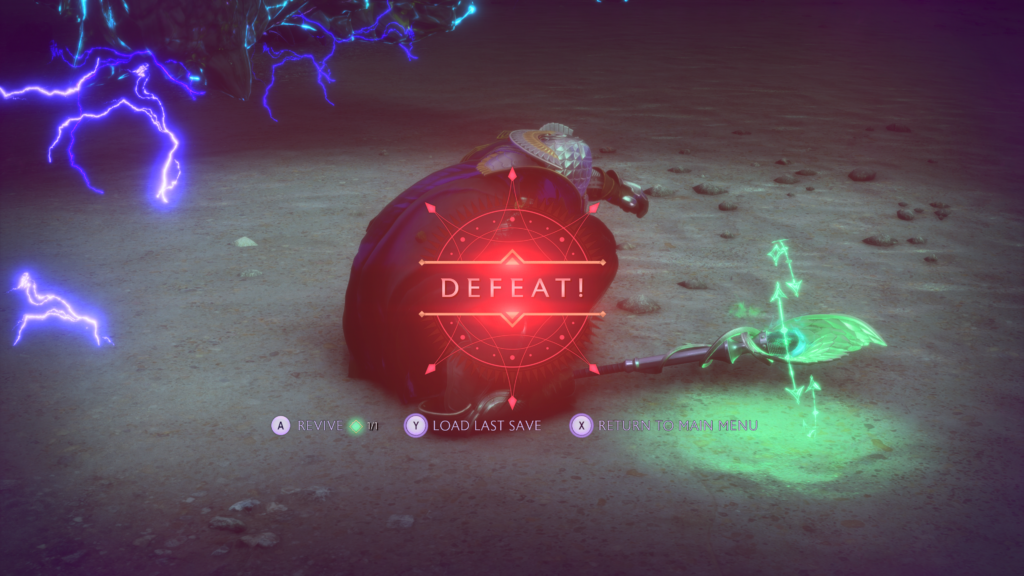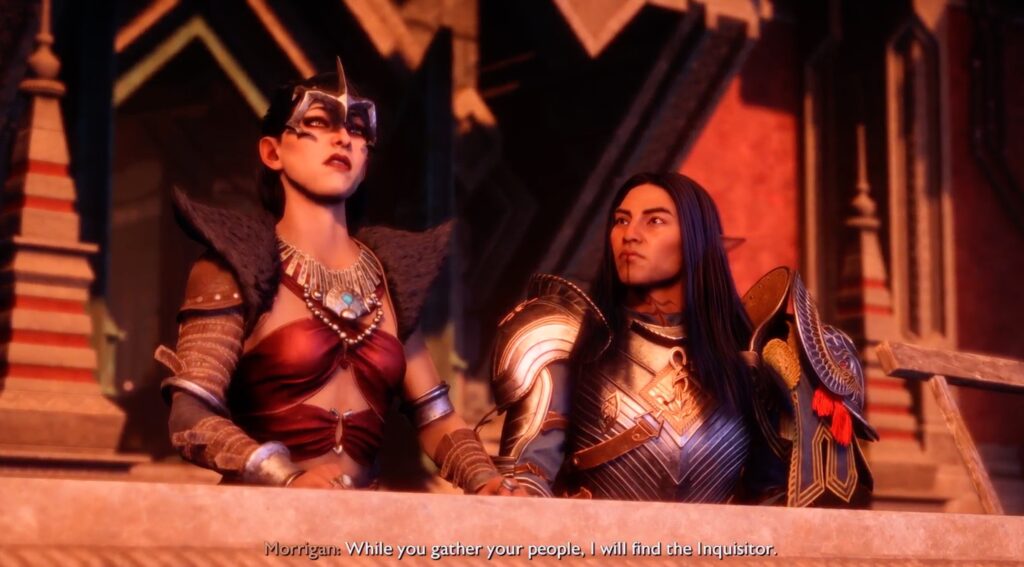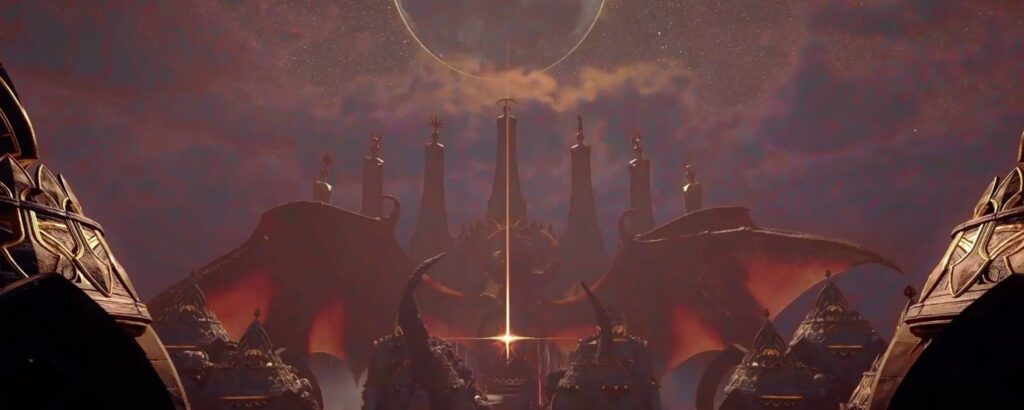I completed Veilguard after 2 days, 23 hours, and 16 minutes of play time, reaching level 50 (the maximum) during my playtime. Endings in games that I enjoy are rarely ‘great’: they are coloured by the fact that stories I have enjoyed participating in are now over. Veilguard doesn’t buck this trend, but it does end well with a good sense that the main story threads have reached a reasonable conclusion.
And, along with my previous thoughts on the game, I feel like I can summarize my recommendation. Veilguard is a game that I’d strongly recommend to anyone who enjoys action oriented role playing experiences with deep in-game stories and character development. Tons of lore, enjoyable character interactions, and an excellent combat system made every hour I spent in Thedas enjoyable.
I have a bit more detail and caveats to offer in the balance of this post.
| Title | Dragon Age: the Veilguard |
| Developer | Bioware |
| Type | Action RPG |
| Platform(s) | Playstation 5, Xbox Series X / S, Windows; Reviewed on Xbox Series X |
| Kelly Score ™ | 93 / 100 |
What I liked
Lots of lore
The Dragon Age games are set in the world of Thedas which has a complex and rich history. The earlier games made much of this history intentionally obscure through the different tellings each culture had of past events. Veilguard uncovers a lot of that history in more complete form through interactions with the ‘god’ Solas, exploration of the Crossroads, companion quests, and pages of text found throughout the world.
I found the lies and misdirection surrounding the dwarves as uncovered while interacting with Lace Harding to be a great example of story telling through action. The selfish interactions of the ‘gods’ (Evanuris) had both created and traumatized an entire people such that their own history became a series of increasingly twisted falsehoods. People weren’t evil simply for the sake of being villains, but the end result was eons of pain.
Solas’ background was equally tragic and understandable, with his love for Mythal twisting what might have once been good intentions into a multiple millennia long nightmare of pride and regret. Spending the time to follow the threads of this story in the game was worth every hour of ‘side questing’.
Along with the “show don’t tell” aspects of the story were a tremendous number of “telling” documents found throughout my play through. These notes and miscellaneous pages were often written in the ‘voice’ of a particular NPC or companion character, and always seemed true to those individual’s quirks. I read every such document and found them all to be enjoyably written.
Companion quests
Veilguard’s companions are integral to the story, and more specifically they have their own detailed tales to play through. I wasn’t a big fan of at least a couple of the companions when I started the game: Bellara was far too chipper and ‘cutesy’ for my taste, and I was not a big fan of Davrin’s gruff boy scout personality. Playing through their stories revealed complexities that made them far more intriguing as people, to the point where I ultimately turned my opinion around almost a full 180 degrees.

Yes, there are in-game mechanics that make playing through each companions story worthwhile. It increases their ‘bond’ with Rook, the person you play, and ultimately unlocks their maximum capabilities. But each companion’s story is also very well written and establishes their fundamental nature in a way that is both elegant and very enjoyable to play through.
I wanted to learn more about each team member, to understand them better. I would have completed their full stories even if it had no value from a mechanics perspective.
Action / tactical combat
I was a bit concerned before starting to play about Veilguard’s shift from tactical combat to a more action-oriented approach. I had enjoyed the ‘strategic’ turn based approach in earlier Dragon Age games where I could carefully control each of my companions individually. But my concerns were ultimately misplaced.
Dragon Age: the Veilguard makes each companion independent in terms of combat movement and moment-to-moment actions. But you can essentially ‘pause’ combat to direct your two associates to use specific abilities or to focus their efforts on particular targets. This works a lot better than I was initially expecting it to: I never felt like I ‘lost’ a great deal by giving up detailed control.
The combat itself plays out with a great deal of impressive moves and explosive action. The tactical ‘pause’ presents ability combo opportunities quite clearly, and these can produce decisive damage on even very strong opponents. I was playing on the ‘nearly easiest’ Keeper difficulty level throughout the game. I never really felt like I was ‘struggling’ excessively to win battles but challenges definitely did arise that required thoughtful choices using my teammate’s abilities and combos carefully.

What I didn’t like
Ending
I think it is generally true that ending an enjoyable game is a very difficult thing to do well. Veilguard’s last couple of hours are extremely enjoyable, but the last few minutes left me feeling somewhat unsatisfied. I don’t think anything was done ‘wrong’, but that last bit made me feel like I was being channelled along a very specific set of tracks with Yes/No choices and a final completion that felt a bit too abrupt.

I think a bit of ‘quiet time’ with my party after the bad guys gasped their last, sitting around the table to talk one last time, would have made a big difference for me. I would have liked to heard the sighs of relief, felt the sadness for the ones lost in those final few hours, and listened to the hopeful plans for the future of each party member.
Companion relations
I picked my ‘exclusive’ romance companion by about the mid-way point in the game. Many of the interactions with this partner were quite touching, but it didn’t feel like there was enough depth once the relationship was clearly established. The cuddling and lovemaking were a bit prudish, and amounted to a single scene lasting about one minute. There was no opportunity outside of the scripted cutscenes to just be with them and chat ‘at will’.
It wasn’t just the positive relationships that felt somewhat underserved, though. I also found it somewhat odd that there were no strong disagreements or conflicts amongst the companions or with my Rook. I recall situations in the earlier Dragon Age games where a decision could be so antithetical to a particular party member that they would leave entirely. And some of the companions in those older instalments never got along at any point, being too diametrically opposed to do more than tolerate each other. Nothing like that seemed to be possible in Veilguard. Everyone just… got along nicely, I guess. I suppose that’s possible, and I don’t hate it, but it seemed somewhat odd.
Gear
One thing that struck me fairly early on was that there wasn’t really any great need to upgrade my gear very often. Yes, there is a ‘upgrade’ system and an ‘enchantment’ system which I took great advantage of. But the vast majority of drops were just… meh.
In particular I found the ‘Unique’ items to be largely pointless. All of the uniques seemed to have one not-that-great superior capability, then some kind of almost curse-like downside. Like zero armour class, but a (slightly) better than average ability bonus. Or slightly more damage, but no ability to be healed during combat.
For the most part I settled on my gear at around level 30 and never changed it thereafter other than via the upgrade and enchantment system. I was carrying around about 20 sets of armour and an equal number of weapons, none of which I’d ever use and which could not be shared with my companions. On the plus side there is no encumbrance system, so all that unused gear was never really a concern- it also wasn’t really something I looked forward to for the last third of my play time.
Conclusion
Veilguard was great in nearly every dimension, more than good enough to make me want another Dragon Age game. Bioware has also made me much more confident that their next Mass Effect game will be something I will enjoy. I am so very happy that Bioware has seemingly set aside the ‘live service’ nonsense and is focusing again on the kind of gaming experience I love.
